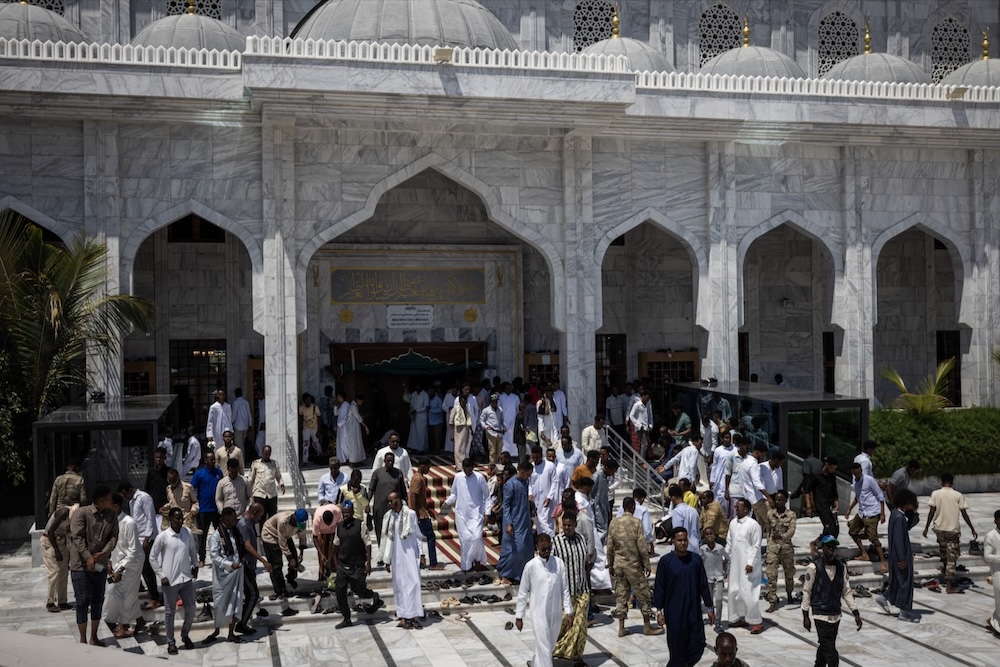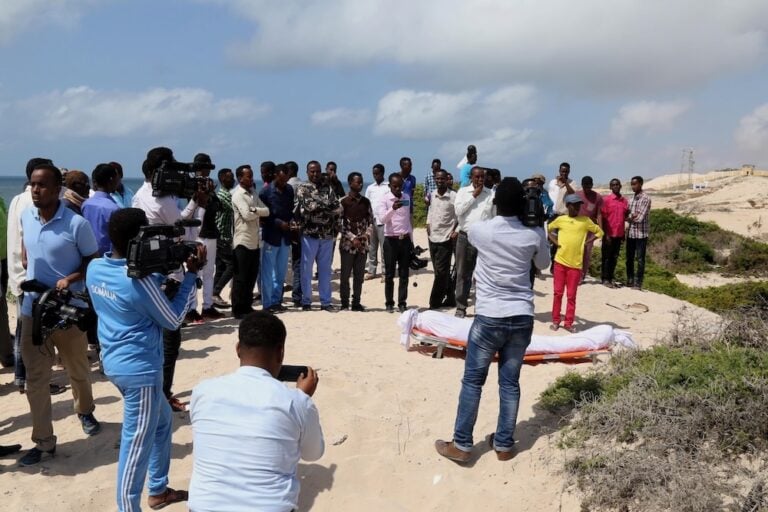Somali journalists reporting on security issues are facing a surge in arrests, harassment, and assaults, as authorities claim the clampdown is needed to fight extremism and protect national security.
This statement was originally published on cpj.org on 15 May 2025.
Somali security personnel have arrested, assaulted, or harassed at least 41 private-media journalists since mid-March, in what local press rights groups have called a “painful experience” and an “alarming escalation” in attacks on the media.
Most of these press freedom violations were connected to coverage of national security issues, including the protracted conflict between the government and the militant group Al-Shabaab.
Since Somalia’s President Hassan Sheikh Mohamud declared a “total war” on the Al-Shabaab following his 2022 election, the government has attempted to censor media coverage of the militant group’s “extremism ideology.” Amid a deteriorating security situation, with Al-Shabaab’s recent bombing near a presidential convoy and attacks on strategic government positions, authorities have stepped up efforts to control public discourse.
On March 6, Information Minister Daud Aweis Jama said there was a ban on publishing “statements or news” that could threaten national security or “misuse or fabricate information, whether directly or indirectly.” Press freedom and human rights groups interpreted these broad directives, which echoed an October 2022 statement by the administration, as censorship.
“The government is really trying to control the narrative, to shape discussions around how it is handling the security situation in the country,” said Abdullahi Hassan, a conflict researcher covering Sudan and Somalia at rights group Amnesty International. “The repression against the media and the attacks on journalists that you are seeing are aimed at silencing government critics and are directly related to those efforts to shape the narrative”
Since March 15, CPJ has documented the following violations in the Somali capital Mogadishu, based on media reports, research by local rights groups the Somali Journalists Syndicate (SJS) and the Federation of Somali Journalists (FESOJ), and interviews with affected journalists:
● On March 15, National Intelligence and Security Agency (NISA) officers raided the home of RTN Somali TV reporter Bahjo Abdullahi Salad and arrested her. Authorities held her for about four hours in connection to a now-deleted TikTok video, in which she commented on the failure to clear rubbish in a Mogadishu district.
● On March 18, police raided the offices of the Risaala Media Corporation after the station aired footage of the site of the bomb attack on the presidential convoy and briefly detained five journalists. Officers briefly held at least 17 other journalists covering the attack as well.
● On March 26, police raided the family home of online journalist Mohamed Ibrahim Osman Bulbul, after he published a series of interviews critical of NISA and covered Al-Shabaab actions. Mohamed Ibrahim, who also works as the information and human rights secretary at SJS, was not home at the time but went into hiding for about three weeks. He told CPJ he was continuing to keep a low profile due to safety concerns.
● On March 28, police officers briefly detained three Himilo TV journalists — Abdirazak Haji Sidow, Anisa Abdiaziz Hussein, and Abdullahi Abdulqadir Ahmed — as well as two journalists from the privately owned news outlet Mustaqbal Media — Abdirizak Abdullahi Adan and Abdirahman Barre Hussein — while they were covering a protest against sexual violence.
● On April 1, police raided the offices of Five Somali TV and arrested journalists Mohamed Roraye, Ahmed Mohamud, Mohamed Abdi Afgooye, Dahir Dayah, following a report alleging the disappearance of police officers. The journalists were released later that day.
● On April 28, police arrested Risaala TV journalists Abuukar Mohamed Keynaan and Abdirashid Adow Ibrahim while they were covering a mortar attack, accusing them of exaggerating the Al-Shabaab’s actions. They were released unconditionally the same day.
● On April 29, security agents shot at and briefly detained Shabelle Media Network journalists Shukri Aabi Abdi and Najib Farah Mohamed as well as Hiiraanweyn TV correspondent Hussein Osman Makaraan and Saab TV’s Deeq Moalim Jiinow while they were interviewing displaced people. The journalists were not injured.
● On May 5, at around 1 a.m., NISA agents raided the home and media studio of journalist Mohamed Omar Baakaay, who runs a news channel on YouTube,while he was away, the journalist told CPJ. The officers beat and arrested Baakaay’s 17-year-old brother and MM Somali TV’s Bashir Ali Shire, who was also staying there.Authorities released them later that day, without providing reason for the arrest, said Baakaay.
Information minister Daud Aweis and police spokesperson Abdifatah Adan Hassan did not respond to CPJ’s requests for comment sent via messaging app. CPJ also emailed NISA, the Somali presidency, and the information ministry for comment, but did not immediately receive any replies.



